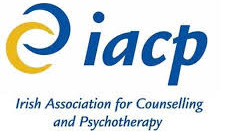What is Cognitive Behavioural Therapy (CBT)?
Cognitive Behavioural Therapy, or CBT, is one of the most widely used and researched forms of psychotherapy today. At its core, CBT is a structured and collaborative approach that helps you understand how your thoughts, emotions, and behaviours influence one another — and how, with guidance and practice, you can change the patterns that are no longer serving you.
CBT is goal-focused, evidence-based, and grounded in the belief that while we can’t always control what happens to us, we can learn to manage how we respond. It’s a practical and effective form of therapy that provides tools for day-to-day challenges, as well as deeper emotional issues.
How CBT Works
CBT is based on the idea that many of our difficulties stem from habitual ways of thinking. For example, if you often assume the worst in situations or engage in critical self-talk, this can affect your mood, your confidence, and your behaviour — often without you even realising it.
In CBT sessions, you’ll work with your therapist to:
- Identify negative or distorted thought patterns
- Explore how those thoughts affect your emotions and behaviours
- Learn to challenge and replace unhelpful beliefs with more balanced ones
- Build practical skills to manage stress, anxiety, and low mood in everyday life
You won’t just talk — you’ll often work with specific tools, exercises, and worksheets that help you apply what you’re learning outside the therapy room.
What Issues Does CBT Help With?
CBT has been shown to be highly effective for a wide range of emotional and psychological challenges, including:
- Anxiety (general, social, panic attacks)
- Depression
- Stress and burnout
- Low self-esteem
- Phobias
- Obsessive-compulsive behaviours (OCD)
- Health anxiety
- Sleep difficulties
- Work-related stress
- Anger issues
- Problematic thinking patterns
It’s also a common part of treatment for more complex mental health conditions, often in combination with other approaches.
What to Expect in a CBT Session
CBT tends to be structured and time-focused. Your therapist will help you set clear goals, and sessions may include exercises such as thought records, behaviour experiments, and relaxation strategies. You might be given things to reflect on or try between sessions, known as “home practice” — always at a pace that feels right for you.
It’s important to note that CBT is not about forced positivity. Rather, it’s about learning to respond to life with more flexibility, awareness, and self-compassion.
CBT at LifeChange, Dublin 2
At LifeChange, our Dublin-based therapists are trained in CBT and often integrate it with other approaches depending on your needs. Whether you’re seeking support for anxiety, low mood, or simply feeling stuck in repetitive patterns, CBT can provide a clear path toward change.
We offer both in-person CBT in our Dublin 2 centre and secure online sessions.
Is CBT Right for You?
CBT is particularly helpful if you’re looking for:
- A focused and practical way to understand your difficulties
- Strategies and tools you can use in everyday life
- A short-to-medium-term approach to therapy with measurable outcomes
Whether this is your first time in therapy or you’re returning after a break, CBT can offer structure, support, and insight.
Meet Our Counsellors & Psychotherapists
Our dedicated team of professionals brings experience, empathy, and a human approach to every session. Each therapist is committed to supporting you with care, insight, and confidentiality.
Ready to Take the First Step?
Booking an appointment is simple and confidential. Whether in-person or online, our qualified therapists are here to support you with care, respect, and professionalism.





